He doesn’t want to be overoptimistic, Safpro’s Craig Jensen says, but the season is looking extremely positive for South Africa and, externalities aside, “the only people who could wreck it in many ways are probably ourselves. We will need to be very circumspect about the quality of fruit being placed.”
Public holidays and continuous rain slowed down the Eastern Cape harvest. “April would normally have seen us done with Satsumas some weeks ago already, and a good volume of lemons packed. We’re now in week 18, and we should be digging into clementines quite vigorously, but we’re struggling to get started.”
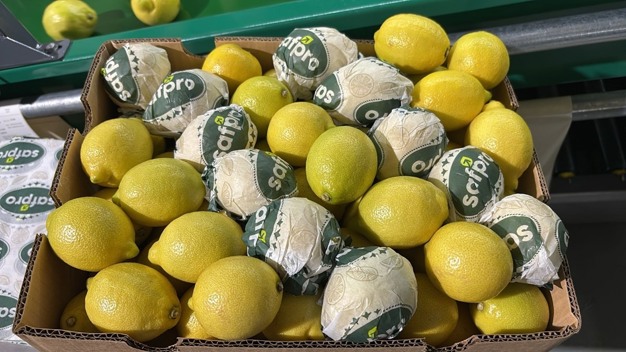
Lemons are obviously extremely sensitive to oleo, so the rain is making that a lot more difficult. “The estimate in the industry, and certainly in the Eastern Cape, was for a drop in lemon volumes, related largely to the early season crops. So, the April-May crop is much lower than normal. We still feel that the main season crop, the June-July-August crop, will be fairly normal, possibly slightly below the previous year, but not a long way off normal.”
With the multiple sets of lemons, he notes, volume can be more difficult to estimate.
Navels look much better than last year, which saw a heavy crop with small fruit and instances of navel creasing. “This year, cooler nights have come in a lot earlier, and colour development is good. The crop looks very healthy with fewer but better-sized fruit. There is a bit of a gap for larger fruit, especially on table oranges. Valencia types are also looking very good. Fruit size is definitely better than last year.”
China to become far more competitive space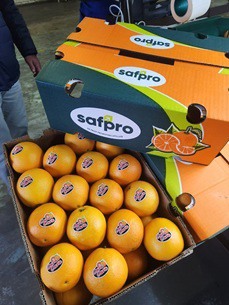 Two days ago, China’s Ambassador to South Africa tweeted about the ‘very fruitful’ discussion he’d had with the CEOs of the Citrus Growers’ Association of Southern Africa and Fruit South Africa, citing the need to strengthen bilateral trade. “Chinese government welcomes more South African agricultural products,” the Ambassador said.
Two days ago, China’s Ambassador to South Africa tweeted about the ‘very fruitful’ discussion he’d had with the CEOs of the Citrus Growers’ Association of Southern Africa and Fruit South Africa, citing the need to strengthen bilateral trade. “Chinese government welcomes more South African agricultural products,” the Ambassador said.
Safpro is one of South Africa’s bigger citrus players in China, “an extremely important market for us,” Jensen says. He visits the country several times a year.
“We’ve worked there for many years, and we have some very solid relationships. The main concern at the moment in China is that, economically, things are very difficult from what we’ve seen. The market has been a lucrative market for many products for many years. The economy saw some golden years in terms of the placement and sale of produce from South Africa, including citrus. What we’re seeing now is a bit of an economic downturn with a lot of really good products available for sale in the market, leaving consumers spoilt for choice on competing products and supply countries.”
He observes that China is going to become a far more competitive space, with a wide choice of products at probably a cheaper price than traditionally. A Chinese client recently told him that while the rest of the world was in an inflationary cycle, China was in a deflationary cycle.
That said, he remarks that there is a big shortage of lemons from Asia. “Chinese lemons are also selling at more than double what they were last year. At the same time last year, if you went into a market like Hong Kong, for example, where the offers were at US$7 or $8 last year, they’re now at US$19 this year.”
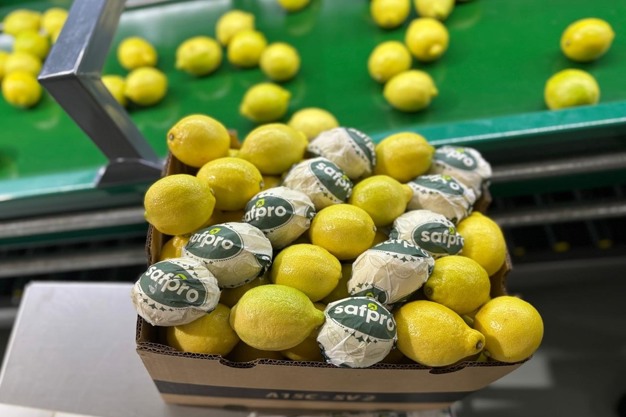
As for uncertainty regarding the United States, most of the citrus marketed by Safpro does not come from the Western or Northern Cape, which have USA access, so their exposure to the US market is limited.
“I think a lot of that volatility is potentially going to be buffered by a decrease in Northern Hemisphere supply. There’s a lack of stock in Europe and other Northern Hemisphere regions, and a higher demand for Southern Hemisphere product will hopefully protect us against some of the volatility that’s likely to be created by the tariff wars. That’s certainly our hope at this stage.”
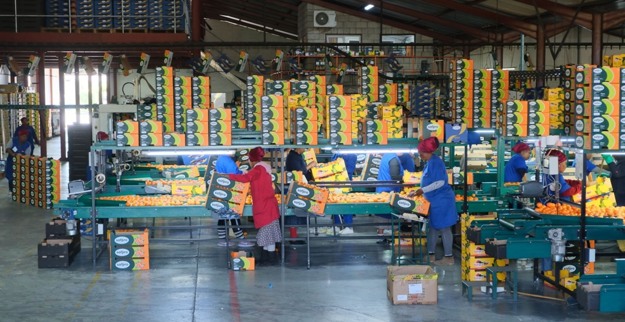 Sitrusrand packhouse, Kirkwood (Eastern Cape)
Sitrusrand packhouse, Kirkwood (Eastern Cape)
Importance of Russia & Middle East
Russia takes a lot of product that is not necessarily easily sold in other markets, he explains, like really big Satsumas, oranges and lemons, and is not concerned about citrus black spot.
“When you finish loading citrus for English or Canadian supermarkets and for Asia, for example, Russia can become a market where you can place a range of fruit without the many phytosanitary restrictions of another citrus-producing country.”
South Africa’s soft citrus production grew “astronomically” over the last five years, and the traditional markets of the UK and Europe are fairly flat in terms of consumption. “That increase in soft citrus production in South Africa needs to go somewhere. Russia and the Middle East have seen a dramatic increase in sales volumes. I pulled some rough numbers on the Middle East, for example, and you see a roughly five-fold increase in soft citrus shipments to the Middle East over the last five or six years.”
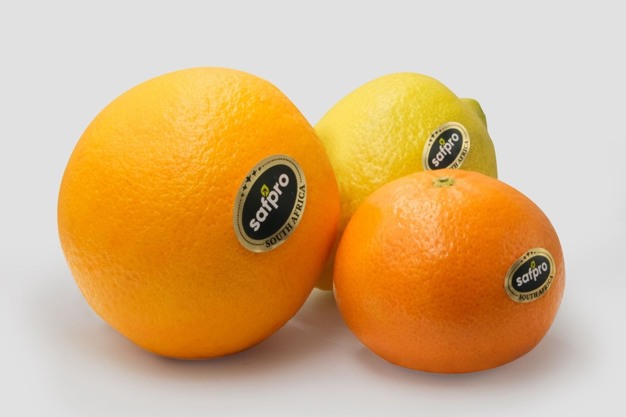
Kiwis
“We’ve been watching the development of kiwis from the sidelines for a number of years and decided to get involved, planting some trials of lower cold requirement varieties in various spots around the country,” he says. “We airfreighted our first few shipments this year.”
He adds: “It’s a product that, although in its infancy in South Africa, I think, has a lot of potential, although this said, it’s not so easy to farm. We’re hoping to see some traction in the coming years on kiwi production in South Africa.”
 For more information:
For more information:
Craig Jensen
Safpro
Tel: +27 41 581 0886/7
Email: [email protected]
https://www.safpro.net/
Source: The Plantations International Agroforestry Group of Companies
